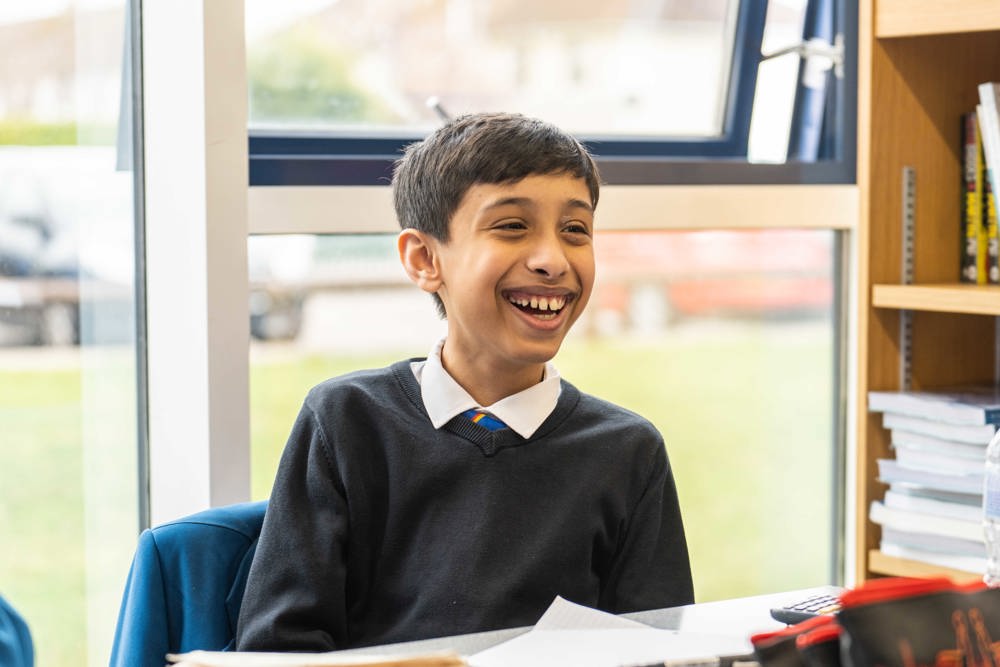
History
Our specialist History teachers aim to develop the intellectual curiosity of students, nurturing a spirit of independent inquiry and building core knowledge and understanding.
Key Stage 3 learners are encouraged to challenge the established orthodoxies and develop a coherent knowledge of the long-term British historical narrative from the Iron Age in Year 7 through to the start of the Cold War in Year 9. In Key Stage 4 detailed subject knowledge is complemented by a rigorous focus on the further development of key historical skills, such as research and critical thinking, laying solid foundations for success at GCSE level and further study. A Level historians are encouraged to be more independent, to hone their time management techniques and to undertake self-directed learning activities as part of their personal review and revision process. A varied programme of trips to historical sites from Gloucester Cathedral to Hampton Court Palace support and extend classroom learning for all year groups.
Curriculum Map
Key Stage 3
Pupils are taught for four periods a fortnight with one homework assignment every week. Assessments take place in every half term, with a formal assessment at the end of the year.
Year 7
History skills. The Romans. The Norman conquest. Castles and medieval warfare. Life and death for medieval peasants. Medieval power and kingship.
Year 8
Henry VIII and the Reformation. Elizabeth and the Spanish Armada. The Civil War and beyond. Enslavement and the road towards freedom. Industrialisation and demands for reform.
Year 9
The Great War. The rise of the dictators. Causes and events of WW2. The Holocaust. Interpretations of Empire. The origins of the Cold War.
Key Stage 4
Pupils follow the AQA GCSE History specification and are taught for five periods a fortnight with a minimum of one hour of homework set every week. Two papers are sat at the end of Year 11, the first covering the topics studied in Year 10, and the second the topics studied in Year 11.
Year 10
Understanding the Modern World (paper 1). Germany 1890-1945, a study of democracy and dictatorship, focusing on the development of Germany and the rise of Nazism. Conflict and tension between East and West 1945-72, causes and events of the Cold War.
Year 11
Shaping the Nation (paper 2). Britain, power and the people – key developments over a thousand years of history, understanding how the relationship between citizen and state developed, and exploring reasons for change including war, religion, government, science and the role of individuals. Medieval England: Reign of Edward I, 1272–1307, incorporating a study of aspects of economic, religious, political, social and cultural life in medieval England.
Useful Links
Key Stage 5
Pupils study the AQA A Level specification and are taught for nine periods a fortnight with a minimum of two hours' homework every week. Extensive reading for the Non-Examined Assessment is required during the summer holiday prior to Year 13. Non-Examined Assessment: The Changing Role and Status of Women c. 1830-1930 or 1870-1970, 20% of A Level. The Tudors: 1485-1603 (2 hours and 30 minutes), 40% of A Level. The American Dream: Reality and Illusion 1945-80 (2 hours and 30 minutes), 40% of A Level.
Entry requirement
Grade 6 GCSE History.
Year 12
The Tudors: 1485-1603 part one, Consolidation of the Tudor Dynasty: England, 1485–1547, covers the reigns of Henry VII, 1485–1509 and Henry VIII, 1509–1547. The American Dream: Reality and Illusion 1945-80 part one, Prosperity, Inequality and Superpower Status, 1945-1963, covering the presidencies of Truman, Eisenhower and Kennedy.
Year 13
The Tudors: 1485-1603 part two, England: turmoil and triumph, 1547–1603, covers the 'The Mid-Tudor Crisis', 1547–1563 and the reign of Elizabeth, 1563–1603. The American Dream: Reality and Illusion 1945-80 part two, Challenges to the American Dream, 1963-1980, covering the presidencies of Johnson, Nixon, Ford and Carter.
Useful Links
Enrichment
Students enjoy regular trips to historical sites, including Gloucester Cathedral in Year 7 and Hampton Court Palace in Year 12 Hampton Court Palace. History students visit other schools to take part in historical debate competitions, and a recent programme of evening lectures at the school has covered topics such as revolutionary African figures, significant women in history, and maps and their impact on geopolitics.
Head of History
Beth Baker blb@strs.org.uk